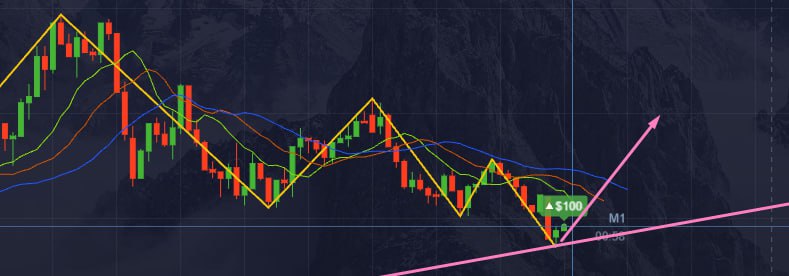2
Canadian securities regulators have started a task force to raise awareness and protect Canadians from the latest investment scam — trading in binary options that can cost investors everything.
What is the minimum withdrawal from Pocket Option? The minimum amount which you can withdraw from the Pocket Optin is $10. Also, if you draw an amount lower than the Pocket Option withdrawal limit (minimum) number, then you may be charged a fee.
How much money do I need to invest to make $1000 a month? Invest in Dividend Stocks A stock portfolio focused on dividends can generate $1,000 per month or more in perpetual passive income, Mircea Iosif wrote on Medium. “For example, at a 4% dividend yield, you would need a portfolio worth $300,000.
Introduction 2
 Pete Evans · CBC News · Posted: Mar 03, 2017 5:00 AM EST | Last Updated: March 3, 2017
A father of four, Fred Turbide was found dead in December after losing his life savings to a binary options trading scam Pocket Option Broker Real Or Fake . (Tomas Ferreira)
Pete Evans · CBC News · Posted: Mar 03, 2017 5:00 AM EST | Last Updated: March 3, 2017
A father of four, Fred Turbide was found dead in December after losing his life savings to a binary options trading scam Pocket Option Broker Real Or Fake . (Tomas Ferreira)
Social Sharing
Canadian securities regulators have started a task force to raise awareness and protect Canadians from the latest investment scam, so-called binary options that can cost investors everything they have.
"Binary options fraud is a leading type of investment fraud facing Canadians today," said Jason Roy, chair of the newly formed task force set up by Canadian Securities Administrators. "We want Canadians to know that there are no registered individuals or firms permitted to trade these products in Canada."
- Slick con artists bilk Manitoban out of $10K
Traditional stock options allow investors to buy a stock or other investment for a certain price, on or before a certain date. As such, gains and losses are limited to the gap between the option price and the market price.
But binary options are a much more short-term bet on the direction of an asset. Unlike regular options, they are all-in: bet right and you make all the money from the person on the other end of the trade. If you're wrong, you lose it all.
"It's a naked bet — with lots of downside," says Neil Gross, the former chair of investor advocacy group FAIR Canada. "These schemes are pretty much gambling, not investing."
They're also growing. Roy says securities regulators across the country received 800 complaints about such scams last year, but the true number of victims is likely far more.
- Beware of the top 5 investment scams targeting Albertans in 2017
Binary options "traders" advertise on websites geared towards investors, as well as on social media, in order to promote their fake investing mobile apps. Regulators are now cracking down on those ads.
But the regulators don't have the power to reach into foreign countries where many of the scammers are based, because they're located in "jurisdictions that in many cases aren't co-operative," Roy says.
Jason Roy is heading up the new CSA task force cracking down on binary options scams. (Courtesy Manitoba Securities Commission)
The overwhelming majority of binary options sites are rigged to lure in victims with small early returns, the CSA says. A "free" $100 in credits will likely be enough to get a victim hooked. But in many instances, no actual trading occurs with any money the scammers receive, and the entire interaction takes place for the purpose of stealing money.
Once the victim has seen some early "wins" on options trades they've supposedly made, the fraudsters will ask for credit card information — and that's when the losses and withdrawals start.
That's exactly what happened to Edmonton business owner Fred Turbide, his son Tomas Ferreira told CBC's On The Money in an interview Thursday.